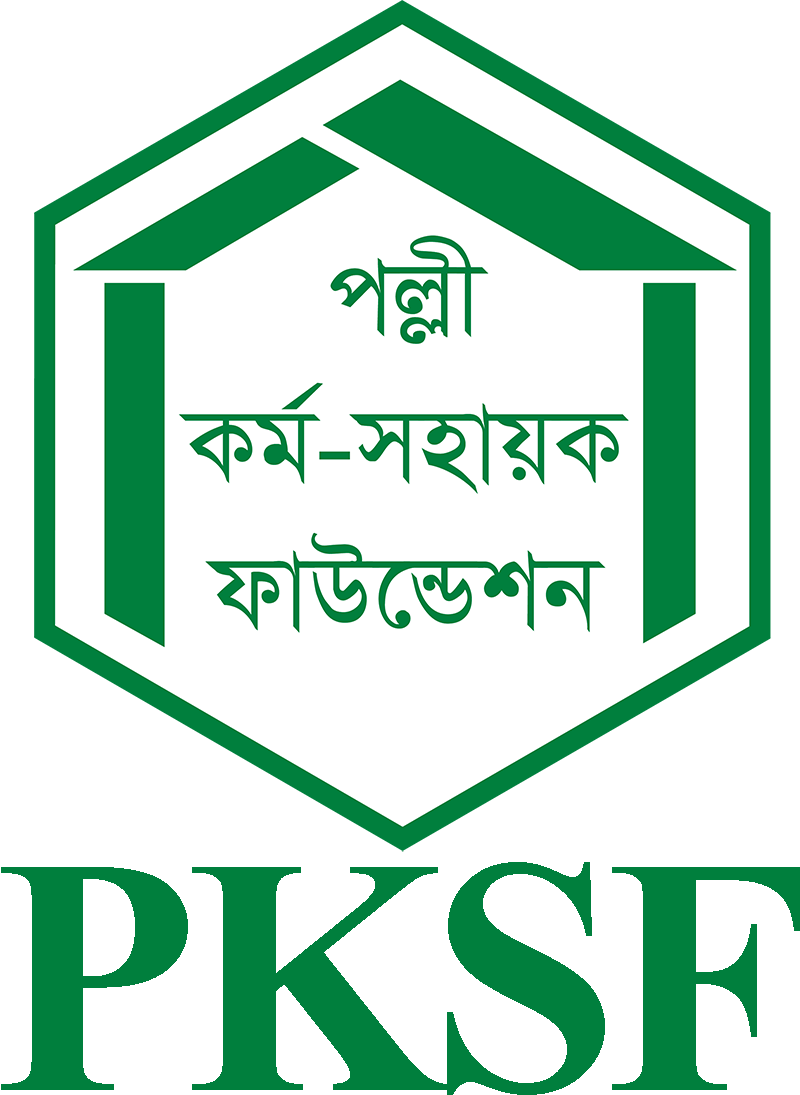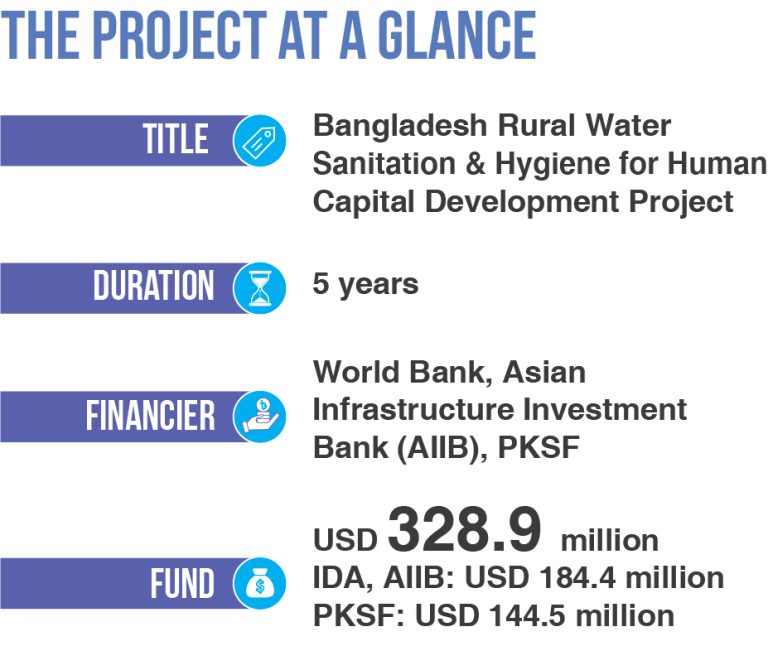
Access to safely managed water supply, sanitation, and hygiene (WASH) facilities is one of the development prerequisites. Despite significant progress in the economic development of Bangladesh, inadequate WASH services in rural areas remain a major concern for the country. The SDG-6 aims to tackle challenges related to drinking water, sanitation and hygiene as well as to water-related ecosystems. PKSF has thus adopted a demand-driven strategy to promote hygienic toilets by using lending instruments.
Bangladesh Rural Water, Sanitation & Hygiene for Human Capital Development (BD Rural WASH for HCD) Project, co-financed by the Government of Bangladesh, the World Bank and the Asian Infrastructure Investment Bank (AIIB), with the aims of improving access to safely managed water supply and sanitation in selected areas of rural Bangladesh and strengthen institutional capacity for water and sanitation services. The Department of Public Health Engineering (DPHE) and PKSF are jointly implementing specific components of the project.
Partner Organization (PO) and Project Area information
The project is currently being implemented in 182 Upazilas of 30 Districts under all 8 Divisions by 87 Partner Organizations (PO) of PKSF. The project locations are shown in the below table:
Division | District |
Barishal | Patuakhali, Pirojpur, Barishal |
Chattogram | Brahmanbaria, Chandpur, Chattogram, Cumilla, Feni, Laxmipur, Noakhali |
Dhaka | Manikganj, Rajbari |
Khulna | Bagerhat, Khulna, Magura, Jhenaidah |
Mymensingh | Mymensingh, Jamalpur, Sherpur |
Rajshahi | Chapainawabganj, Pabna, and Bogura |
Rangpur | Gaibandha, Kurigram, Lalmonirhat, Nilpphamari |
Sylhet | Sylhet, Habiganj, Sunamganj and Moulvibazar |
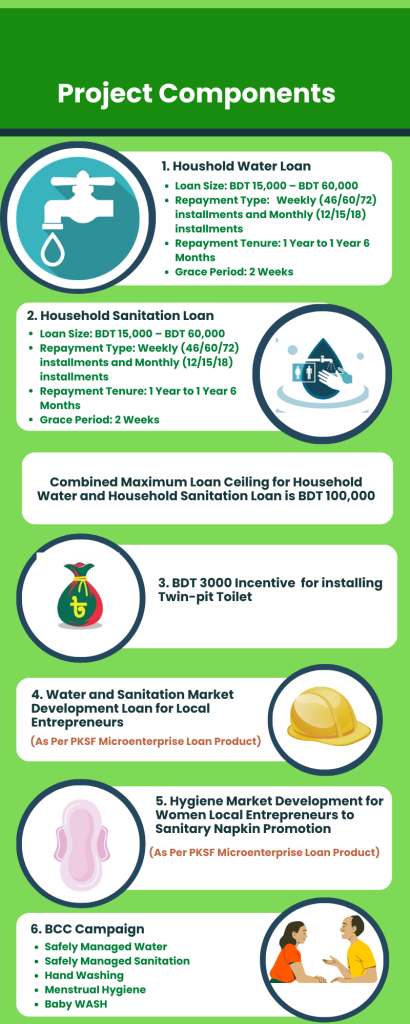
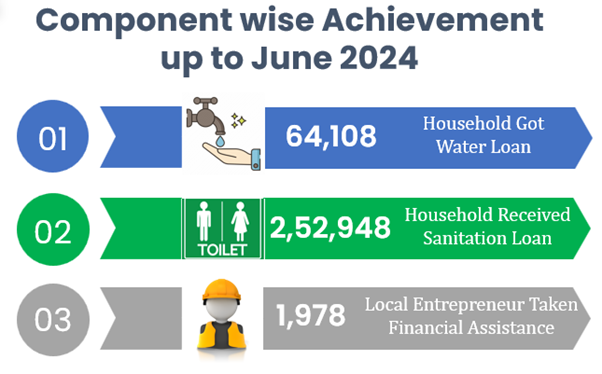
Construction Status of Household Water Facilities
To achieve SDG Target 6.1, universal and equitable access to safe and affordable drinking water for all, the project is providing support to construct Safely Managed piped water supply system at the household level and the target is 0.12 million households.
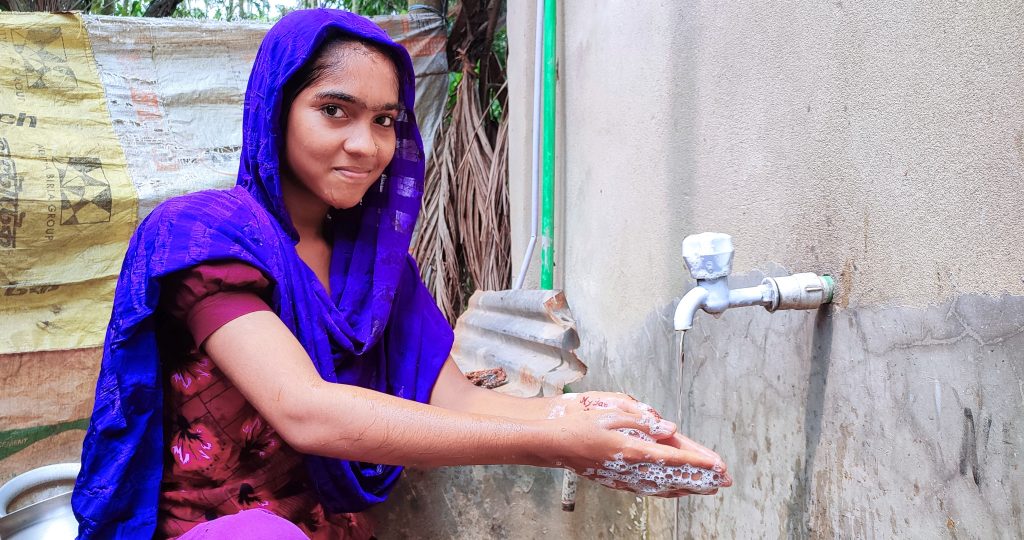
Construction Status of Household Sanitation Facilities
To achieve SDG Target 6.2, access to adequate and equitable sanitation and hygiene for all and end open defecation, paying special attention to the needs of women and girls and those in vulnerable situations, the project is also providing support to construct Safely Managed twin-pit toilets at the household level and the target is 1.0 million households.
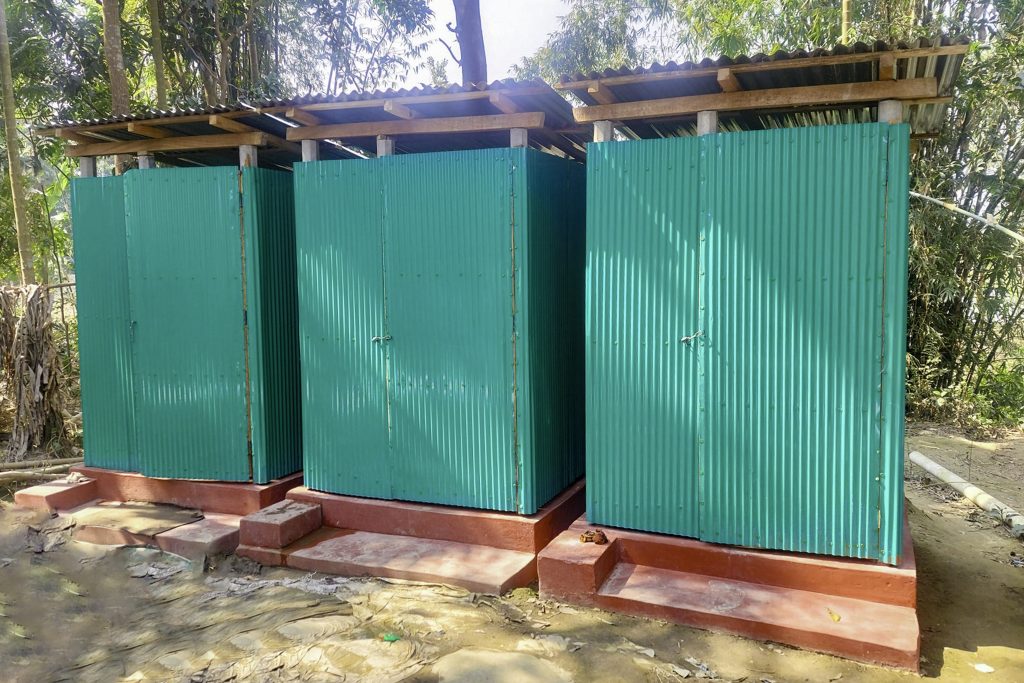
BCC Campaign
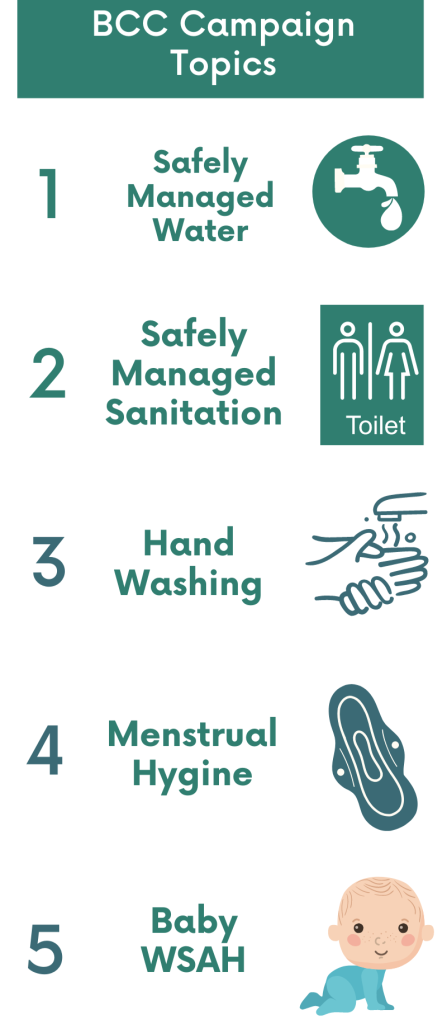
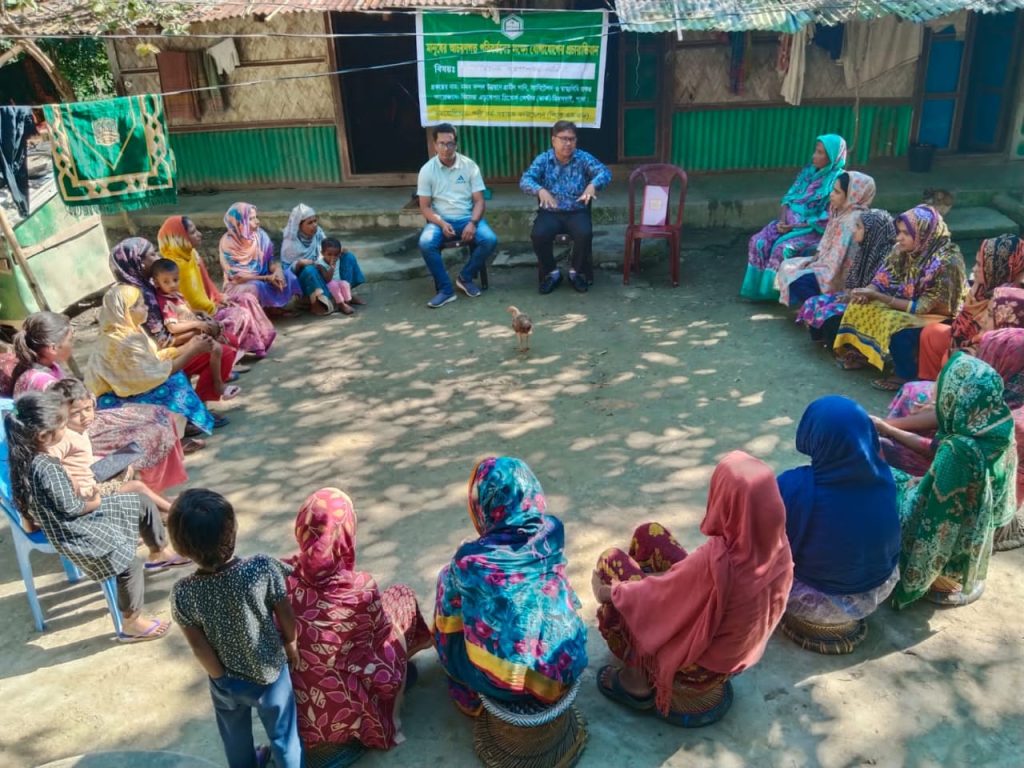
The project is implementing behavioral change communication (BCC) campaign aiming to change WASH behaviors, raise WASH awareness and willingness to pay for the improvement of safely managed WASH facilities. The BCC campaigns are being conducted on five topics which are facilitated by the Field Officer of Partner Organizations.
Capacity Building: Capacity building is another key issue of the project. Both local entrepreneurs (LE) and partner organizations’ (PO) staffs are receiving training and other necessary supports for their development. The training sessions are organized jointly by Project Management Unit (PMU) of PKSF and Technical Assistant (TA) Firm, JV of e-GEN-UST-DM WATCH.
Capacity building of LE: One of the key stakeholders of the project’s implementation in the field is the Local Entrepreneurs (LEs). After receiving proper training and other assistance, they are constructing safely managed twin pit toilets and safely managed water supply systems at the household level. Till June 2024, a total of 3,152 LE received hands-on training. Besides, 161 women LEs have received training for business development and promotion of sanitary napkins.
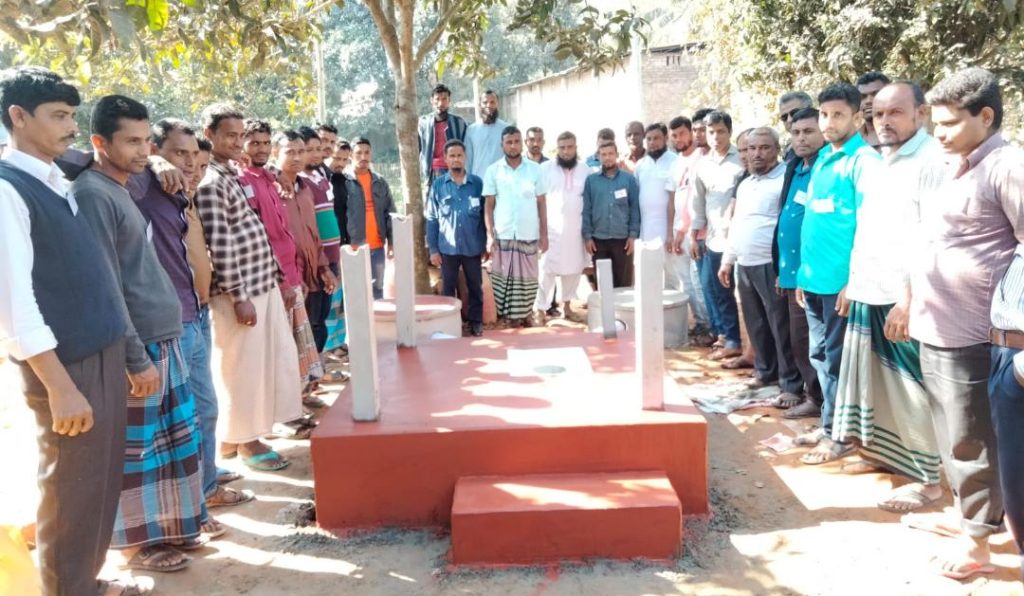
Capacity building of PO Staff: To enhance the knowledge and expertise on WASH along with microfinance, capacity building is essential for field-level staff of PO. The project has the target to develop the capacity of all staff on the WASH concepts, construction and monitoring of WASH facilities. A total of 11,105 PO staff have been capacited by the Technical Assistant (TA) Firm and Project Management Unit (PMU) up to June 2024.
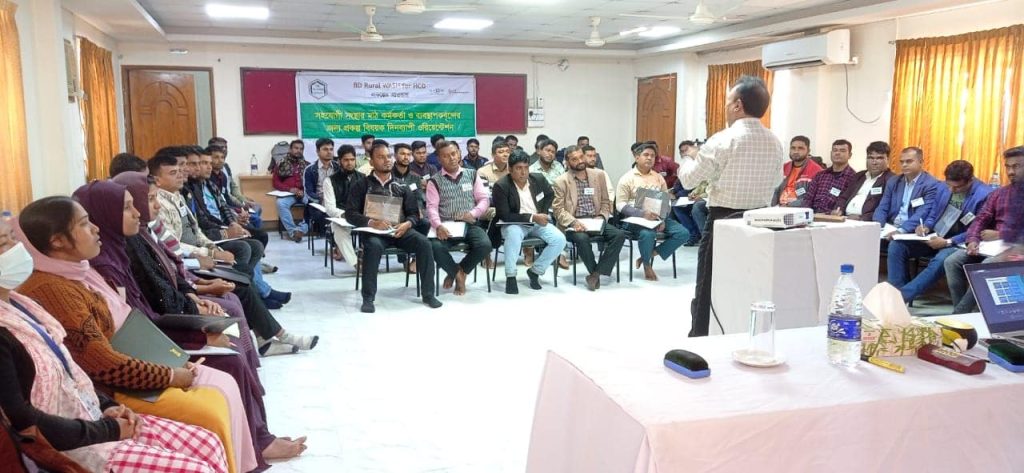
Upazila Coordination Committee (UCC) Meeting: The core purpose of this committee is to ensure proper coordination among the project-implementing Partner Organizations at the Upazila level. The meeting is organized once every three months to discuss and coordinate the project’s implementation strategy, LE management, tackling the overlapping issues, training and so on. Till June 2024, a total of 948 meetings were held by the POs where PMU members have participated.
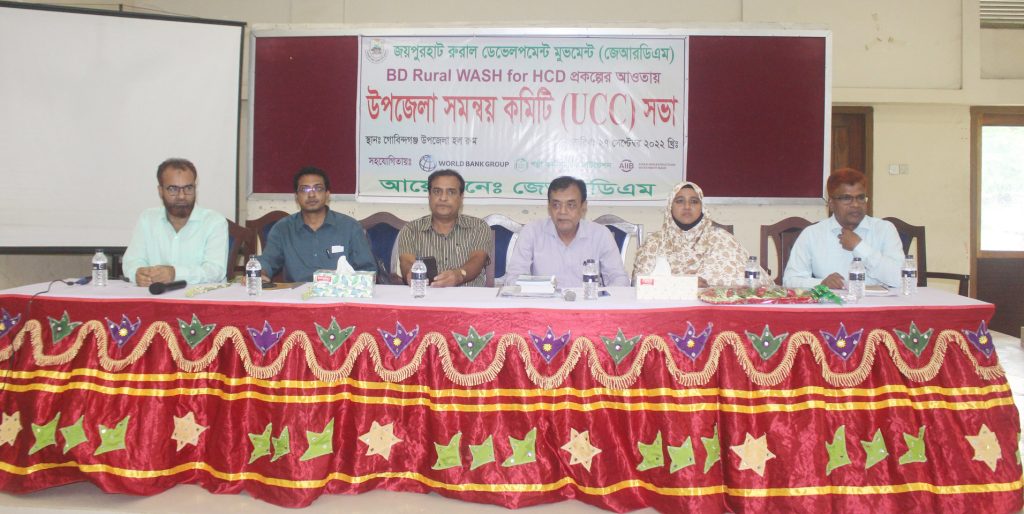
Others Events
PKSF Managing Director attends Eastern and Southern Africa Leadership Summit on WASH
PKSF Managing Director Dr Nomita Halder ndc attended the two-day ‘Eastern and Southern Africa Leadership Summit on Accelerating Universal Access to Water, Sanitation and Hygiene (WASH)’ held from 14-15 November 2023 at Addis Ababa in Ethiopia. The summit was hosted by the World Bank and the Ministry of Finance of the Government of Ethiopia. This event helped identify and seize opportunities to increase private and public funding and implement the necessary sector reforms to serve all Eastern and Southern African residents still lacking access to WASH. Around 250 leaders including Ministers of Water and Finance, development partner representatives, private sector representatives and the World Bank Group representatives from all over the world attended the summit.
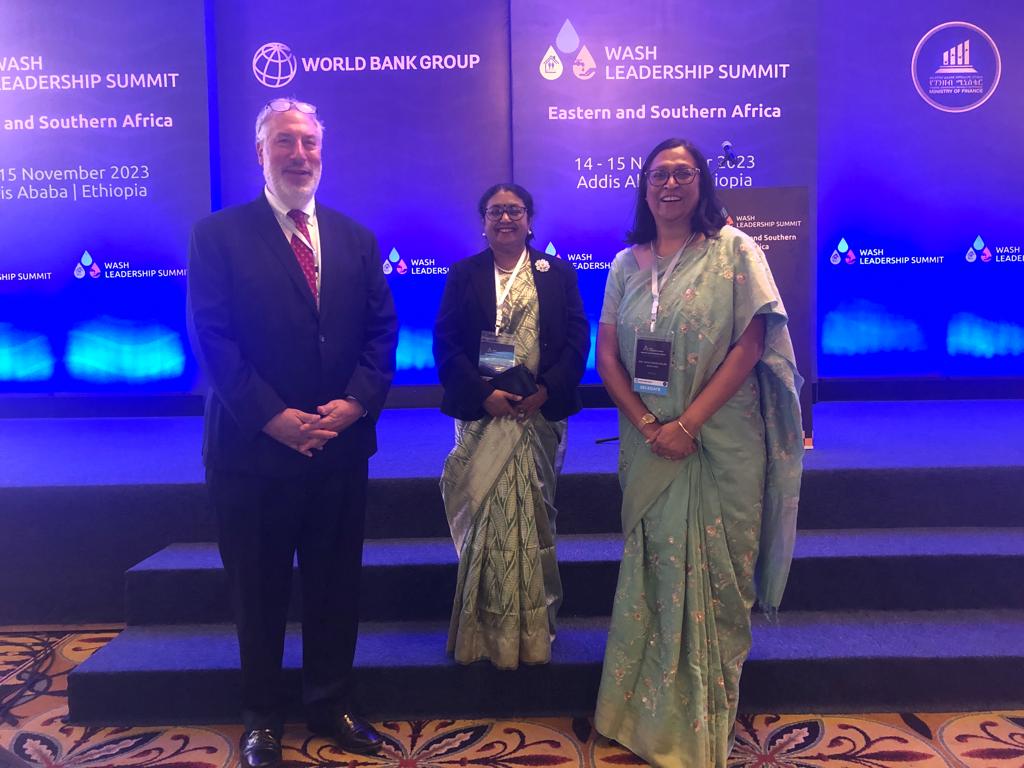
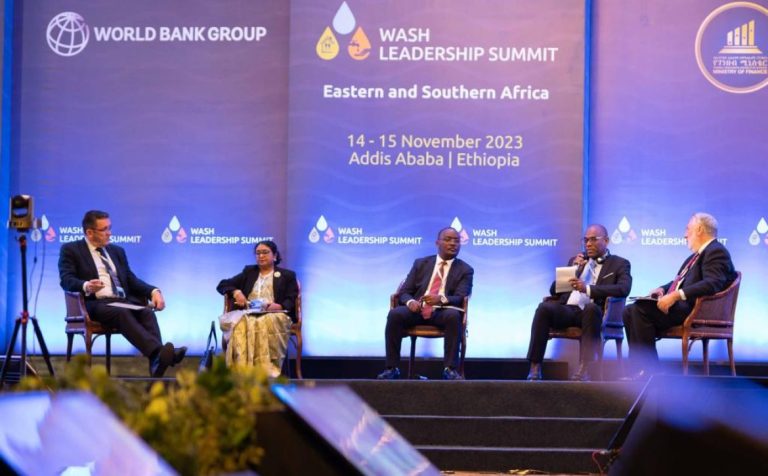
Regional Workshops
To accelerate the project activities and enhance the senior management engagement of Partner Organizations (PO), several regional workshops titled ‘BCC Campaign and Project Implementation Strategy’ have been organized in six regions of the country. In these workshops, the Additional Managing Director, Project Coordinator and other PMU members have participated.
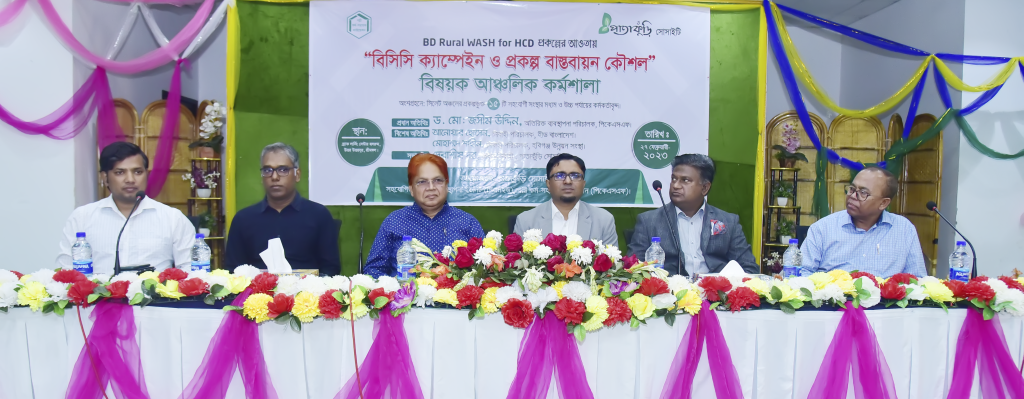

Annual Coordination Meeting
The 2nd annual coordination meeting of the Bangladesh Rural Water, Sanitation and Hygiene for Human Capital Development (BD Rural Wash for HCD) project was held at PKSF auditorium on 14 May 2023. Md Fazlul Kader, Additional Managing Director of PKSF, spoke about the relevance of Bangladesh WASH Sector and BD Rural WASH for HCD project in the light of Sustainable Development Goals (SDGs). Dr Md Jashim Uddin, Additional Managing Director of PKSF, gave the welcome speech in the meeting. Md Abdul Matin, General Manager and Project Coordinator of BD Rural Wash for HCD, gave a presentation on the work plan, implementation strategy and progress of the project. Rokeya Ahmed, Senior Water Supply and Sanitation Specialist, World Bank, also spoke in the meeting. Executive Directors and focal persons from 57 project implementing Partner Organizations (POs) participated at the conference and shared their views during the open discussion session.
Related Thematic Area:
